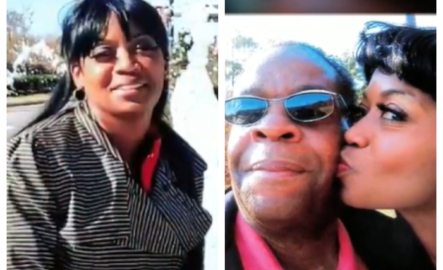When on Monday, January 19, 1981, police officers, a psychologist and a chaplain failed in their bid to dissuade a man from jumping to his death, Muhammad Ali saved the day.
On the day, a young black man in flared jeans and a hoodie was perched on a ledge on the ninth floor of a high-rise structure threatening to jump to his death. Thanks to Boris Yaro, a photographer for The Los Angeles Times who heard about the suicidal jumper on the radio and drove to the scene, photos soon emerged about the tense event.
At Los Angeles’s Miracle Mile, the suicidal man, identified as Joe in reports, had been up there for hours and according to a police spokesman, “he seemed to think he was in Vietnam — with the Viet Cong coming at him.”
Sure enough, a crowd had formed on the street and according to some reports were goading Joe to jump to his death. When a psychologist and a chaplain, as well as police officers, implored him to come inside, he replied “I’m no good,” threatening to jump whenever someone got too close.
In the crowd was Ali’s friend, Howard Bingham, who upon seeing that all hope was nearly lost, called Ali. The heavyweight champ lived nearby. “About four minutes later,” Bingham later told reporters, “Ali comes driving up the wrong side of the street in his Rolls-Royce with his lights blinking.”
Yaro captures Ali leaning out a window to get a look at Joe. Joe, meanwhile, is balanced on a ledge. According to CBS News, the man was saying, “I’m no good, I’m going to jump” while Ali countered “You’re my brother, I love you and I wouldn’t lie to you. You got to listen. I want you to come home with me, meet some friends of mine.”
When the man asked, “Why do you worry about me? I’m a nobody,” Ali in a later interview with the Reading Eagle, said “I told him he wasn’t a nobody. He saw me weeping and he couldn’t believe I was really doing that, that I cared that much about him”.
Eventually, Ali made his way to the fire escape, put an arm around Joe and guided him inside. The two walked out of the building together, got in Ali’s car and drove to the police station before Ali accompanied him to a Veterans Administration Hospital.
Ali told the assembled press:
“I’m going to help him go to school and find a job, buy him some clothes. I’m going to go home with him to meet his mother and father. They called him a nobody, so I’m going home with him. I’ll walk the streets with him and they’ll see he’s big,” adding “Every day I’m going to visit him in the hospital. I told him I’d stay close to him.”
Joe, according to Ali, was depressed and couldn’t find work while also being treated unfairly by his family. The police reported that Joe was “badly disturbed,” while a follow-up story by The Los Angeles Times showed that Joe was only 21, too young to have served in Vietnam.

But the good news was that the renowned boxer did well, with a police spokesman telling the press “No doubt about it, Ali saved that man’s life.”
It would be recalled that Ali spent three and a half years of his athletic prime stripped of his boxing license for protesting the Vietnam war, the same war which supposedly haunted Joe. To save the life of a total stranger in 20 minutes whiles others had tried for three hours underlined Ali’s connection with people.
On June 3, 2016, Ali, the three-time heavyweight champion, passed away, having battled Parkinson’s disease for more than 30 years.










